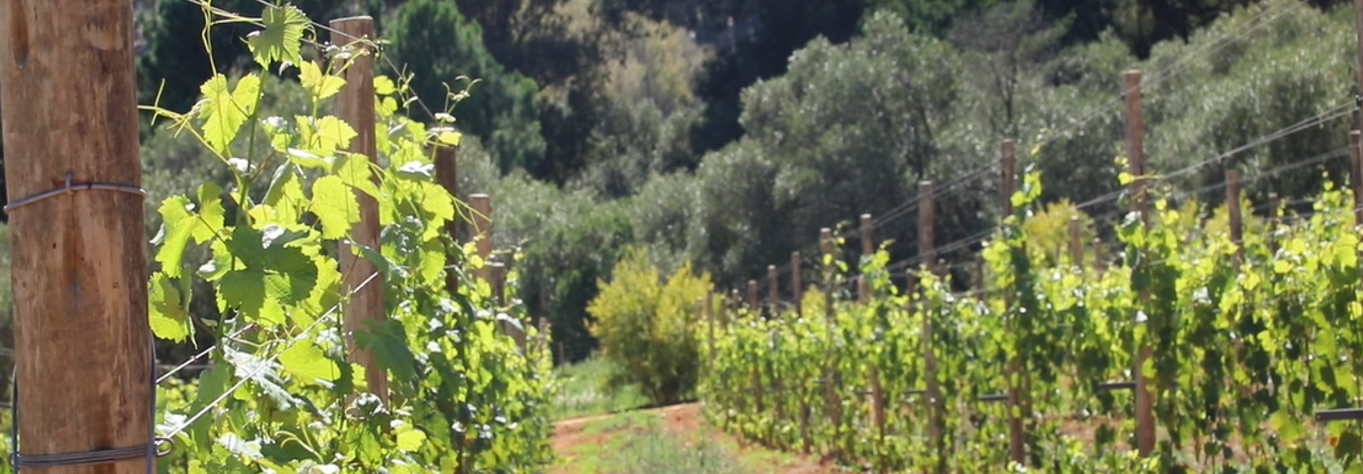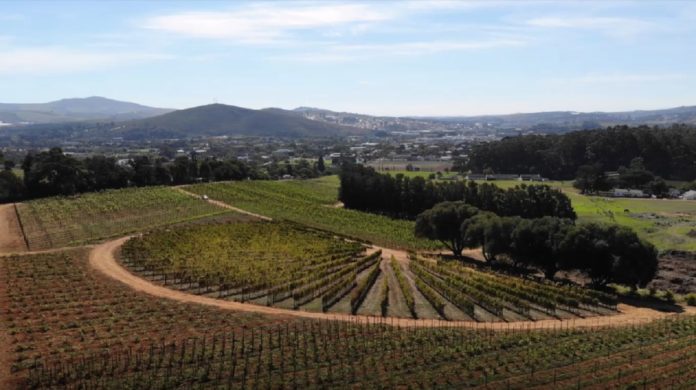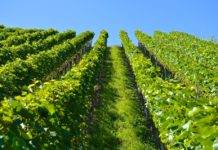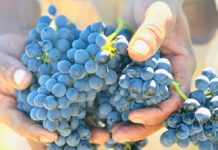Stellenbosch University and Vinpro have just launched a world-class platform for vineyard training and research at the Welgevallen experimental farm in Stellenbosch.
“The Welgevallen Training and Research Vineyards, established in collaboration with SU’s Department of Viticulture and Oenology, will not only offer students and researchers of the university access to an exceptional training and research facility, but is also a great platform for knowledge transfer to the broader wine industry,” said Prof Danie Brink, dean of SU’s Faculty of AgriSciences, during the official launch in Stellenbosch today.
SU’s Faculty of AgriSciences funds the project and has appointed the wine industry body Vinpro to implement it over the next three years as part of the organisation’s Gen-Z vineyard project, which aims to promote knowledge transfer in the South African wine industry by practical demonstrations and vineyard trials.
Six purpose-driven vineyard blocks
Nearly 4.5 ha of SU’s former training vineyards were uprooted in 2019 and replaced in 2020 with six diverse vineyard blocks, which focus on winemaking, trellis systems, traditional and new wine grape varieties, clones and rootstocks, irrigation, pruning systems and table and dried grape cultivation.
The winemaking block consists of 19 red and white wine grape cultivars essential to undergraduate grape and wine sciences students’ curriculum for winemaking purposes. In the trellis system block, one grape variety, namely Chenin Blanc, is trained on 19 different trellis systems and cultivated as bush vines to demonstrate the respective trellis systems and the effect of vine spacing on root distribution.

A vineyard block dedicated to irrigation management has been meticulously designed by the project and research team at the Department of Viticulture and Oenology, specifically with a view to perform extensive water management research. The wine industry body Winetech will fund the project going forward. The cultivar block, which consists of more than 80 grape varieties, displays the diverse characteristics of different cultivars, clone variations and rootstocks.
Another vineyard block demonstrates 10 diverse pruning systems, including the Guyot, shortbearing, Cazenave, box, mechanised, and Italian Simonit & Sirch pruning systems. Finally, the table and dried grape vineyard block is the first of its kind on this site and consists of more than 20 table and dry grape varieties that are trained on six different trellis systems.
“The new training and research vineyards, designed in consultation with the Department of Viticulture and Oenology’s lecturers, expose students to as many vineyard management practices as possible and offer excellent research opportunities,” says Talitha Venter, lecturer at the Department of Viticulture and Oenology who oversees the project with the Gen-Z team. “Current students experience all the processes associated with vineyard establishment first-hand, while future generations will benefit from well-planned, well-developed vineyards in which they will gain valuable practical experience.”
The vineyards will also be used in the future for training and knowledge transfer to producers and vineyard workers, and will give input suppliers with the opportunity to evaluate and demonstrate new technology or products at this site.
New forward-thinking phase
“The establishment of this world-class site for vineyard training and research resulted from the centenary celebrations of SU and the Faculty of AgriSciences in 2019, and symbolises the transition into the next phase of renewal, innovation, technology and knowledge transfer,” says Prof Brink.
“Stellenbosch University will only be able to continue to exist as a world-class institution through partnerships. By joining hands with our wine industry partners – Vinpro, Winetech and their network of experts – we have managed to cross the bridge between academics and the private sector, while at the same time providing a platform for innovation and creative learning. We are also building our intellectual capital and challenging the next generation of students and researchers to seize opportunities such as this site to make a meaningful difference in the industry going forward.”
“For the South African wine industry to remain globally competitive, we must continuously innovate and equip our people with the right skills. That is why it is crucial for the industry and academic institutions to collaborate,” says Vinpro CEO Rico Basson. “The partnership between the wine industry and SU goes back more than 100 years, and we are therefore excited to be part of this milestone that serves as a building block for innovation and talent development for generations to come.”

“The Gen Z vineyard project aims to establish demo sites across the wine industry, and the technology transfer that flows from this will add significant value to the wine industry in the long term,” says Francois Viljoen, manager of Vinpro’s Gen Z project. “Our involvement as project leaders in establishing these purpose-driven vineyard blocks at Welgevallen was therefore a natural next step to showcase the latest technology, vineyard practices and plant material to students and researchers from the various academic institutions, but also the wider wine industry – including wine grape producers, viticulturists, winemakers and vineyard workers – thereby taking our combined expertise to the next level.”
“This project would not be possible without valuable support from the industry in terms of the donation of plant material, poles, wire, irrigation material, and more, as well as their expertise and time. We thank everyone for their contribution and would like to encourage any other interested parties to get involved,” says Francois.
In addition to the training and research vineyards, 16 ha of vineyards will be established for commercial purposes over the next three years, the planting of which will kick off later this year.









